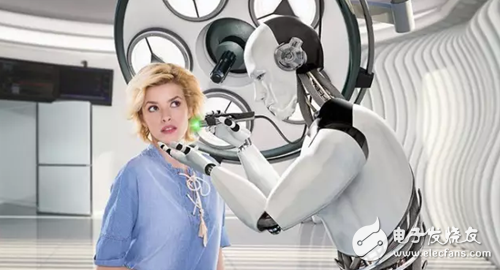The rapid development of the robotics industry is truly remarkable. It's no exaggeration to say that robots are now everywhere, from factories to hospitals. Recently, there have been significant advancements in the use of robots in the medical field.
At the Watson Cancer Counseling Center at the First Hospital of Nanjing, a 60-year-old male patient with gastric cancer was presented to the AI system by an oncologist. The doctor provided detailed information about the patient’s medical history, treatment progress, and cancer metastasis. After the robot "listened" and "thought" for a moment, it generated a comprehensive treatment plan within just 10 seconds, including medication recommendations, treatment options, and references.

Unlike human doctors who rely on years of clinical experience, Watson analyzes global data from thousands of cases. This powerful system is not designed to replace doctors but to assist them. It contains over 300 medical journals, 250 oncology textbooks, and 15 million research papers, offering evidence-based, personalized treatment plans for cancer patients.
Watson also lists possible treatment options as well as those that are not recommended. When a doctor chooses a treatment path, the system provides additional data such as case numbers, survival rates, and side effect statistics, helping physicians evaluate the effectiveness and risks of each option.
However, due to differences in individual patients—such as cultural background, family situation, and emotional state—Watson cannot fully replace the personal connection between doctors and patients. Human doctors bring empathy, warmth, and emotional support, while Watson strictly follows data and guidelines, functioning as a cold machine.
When combined, the collaboration between doctors and Watson can lead to more standardized, effective, and humanized care for patients. This partnership helps build greater confidence in cancer treatment.
Watson, developed by IBM, was created in collaboration with top U.S. cancer treatment centers. It is considered one of the most advanced AI systems in oncology. Its treatment plans cover various cancers, including breast, lung, rectal, colon, stomach, cervical, ovarian, and prostate cancers. By 2017, it was expected to expand to 9–12 types of cancer, further enhancing its impact on modern medicine.
PCBA OEM ,small pcb board,Audio Circuit Board,Pcb Board Production,Pcb Board Assembly
Dongguan Jingling Communication Technology Co., Ltd. , https://www.jlpcba.com